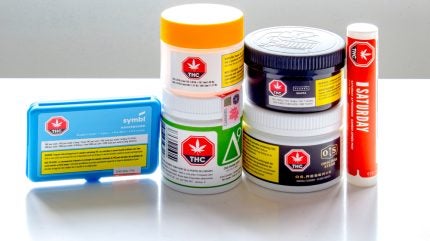
The growing popularity of cannabis products in Washington state has sparked a conversation around the environmental impact of packaging and product waste.
As more consumers indulge in cannabis, especially following events like 4/20, a noticeable increase in packaging waste has become a cause for concern.
From disposable vape pens to plastic packaging for edibles and joints, the issue is one that is difficult to ignore, particularly as it accumulates over time.
Strict packaging regulations lead to more waste
Washington state imposes strict packaging rules on cannabis products to comply with federal regulations, such as the Poison Prevention Packaging Act, which is designed to prevent children from accessing these products.
However, these regulations have inadvertently contributed to a significant increase in waste. For example, cannabis products in Washington often come in plastic packaging that is thicker than necessary.
Some edibles, like Wyld gummies, are individually wrapped in plastic, while in other states, the same product might be sold in simpler, more sustainable packaging.

US Tariffs are shifting - will you react or anticipate?
Don’t let policy changes catch you off guard. Stay proactive with real-time data and expert analysis.
By GlobalDataThe added layers of plastic contribute to growing concerns about the environmental impact of the cannabis industry in Washington.
Single-use vapes pose a growing problem
One of the most pressing issues raised by cannabis retailers is the widespread use of disposable vape pens.
These single-use devices, while popular among consumers, pose significant environmental challenges. Unlike other waste that can be disposed of in regular trash, disposable vapes contain batteries, making them hazardous and unsuitable for standard disposal methods.
As a result, many vapes end up being thrown away improperly, potentially causing environmental harm. Despite being a popular choice for around 25% of customers, disposable vapes currently lack a clear recycling or disposal plan, making them one of the most problematic forms of waste in the cannabis industry.
The need for change in Washington’s cannabis industry
The growing waste problem in Washington’s cannabis industry calls for action, with some retailers pushing for changes to mitigate the environmental impact.
Mitchell Dunn, the assistant manager at Lucky Leaf Co. in Spokane, has been an advocate for reducing cannabis waste and suggests starting with simple initiatives like recycling cannabis containers.
While legislative changes are likely necessary to address the issue on a larger scale, Dunn believes that small steps within the industry could make a significant difference.
With eco-conscious consumers who value sustainability, there is hope that the cannabis industry can find ways to reduce its environmental footprint and implement more responsible waste management practices.



